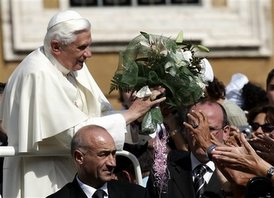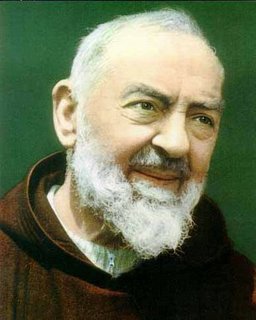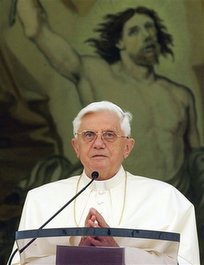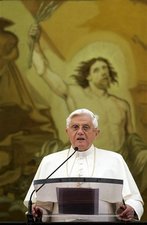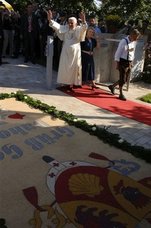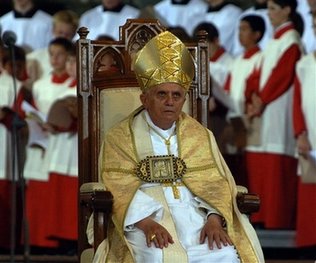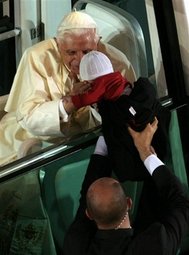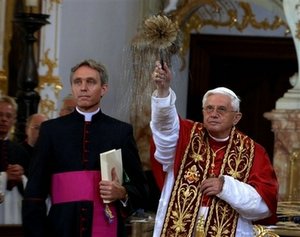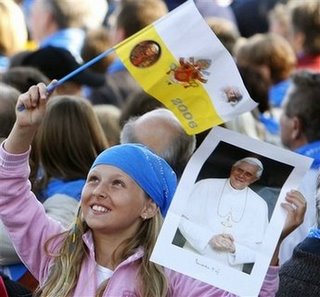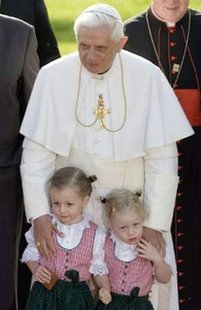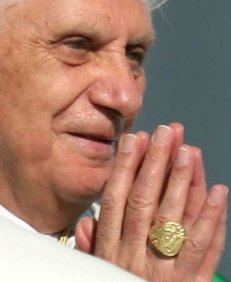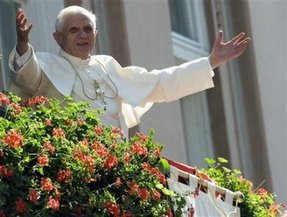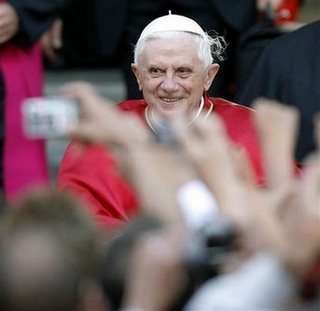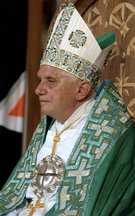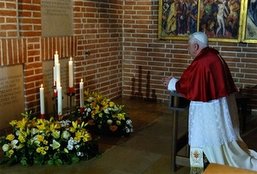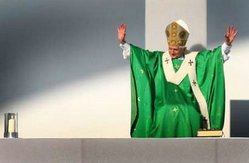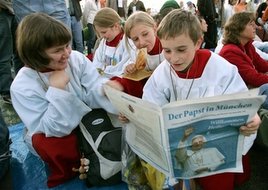Feast of St. Michael and the Archangels
 A Prayer to Saint Michael
A Prayer to Saint MichaelSaint Michael, Archangel, defend us in battle.
Be our protection against the wickedness and snares of the Devil. May God rebuke him, we humbly pray;
And do thou, O Prince of the Heavenly Host,
by the power of God, thrust into hell Satan and all the other evil spirits who prowl about the world seeking the ruin of souls. Amen.
Oracion a Sancte Michael
Sancte Michael Archangele, defende nos in proelio contra nequitiam et insidias diaboli esto presidium. Imperet illi Deus, supplices deprecemur: tuque, princeps militie celestis, Satanam aliusque spiritus malignos, qui ad perditiunem animorum pervagantur in mundo, divina virtute, In infernum detrude. Amen. - Pope Leo XIII
Pope John Paul II urges revival of the Prayer to Saint Michael
The Prayer to the Archangel Michael was composed by Pope Leo XIII (d. 1903) after he had a vision of the battle between the "Woman clothed with the sun" and the great dragon who tried to devour her child at birth, in the Book of Revelation 12:1-4. In 1886, the pope decreed that this prayer be said at the end of "low" Mass (not "high", or sung Masses) throughout the universal Church, along with the Salve Regina (Hail, Holy Queen); and the practice of the congregation praying these prayers at the end of Mass continued until about 1970. In 1994, during the International Year of the Family, Pope John Paul II asked all Catholics to pray this prayer daily. He warned that the fate of humanity was in great peril (in particular because of the United Nations Population Conference to be held in Cairo that year). Though he did not order that the prayer be said after Mass, he urged Catholics to pray together to overcome the forces of darkness and evil in the world.
In his Angelus message given in St. Peter's Square, Sunday, April 24, 1994, the pope spoke of "the Woman clothed with the sun" in Pope Leo XIII's vision. The Holy Father said that in our time "all the accumulated threats to life" are placed before woman, and we must "address the Woman clothed with the sun" to overcome these snares. In this message he encouraged the revival of the prayer to Saint Michael:
"May prayer strengthen us for the spiritual battle of which we are told in the Letter to the Ephesians: 'Draw strength from the Lord and from His mighty power' (Ephesians 6:10). It is this same battle to which The Book of Revelation [Apocalypse] refers, recalling before our eyes the image of Saint Michael the Archangel (cf. Revelation 12:7). Pope Leo XIII certainly had a very vivid vision of this scene when, at the end of the last century, he introduced a special prayer to Saint Michael throughout the Church. Even if this prayer is no longer recited at the end of every Mass, I ask everyone to remember it and to recite it to obtain help in the battle against forces of darkness and against the spirit of this world".Adoremus ; Image from here

